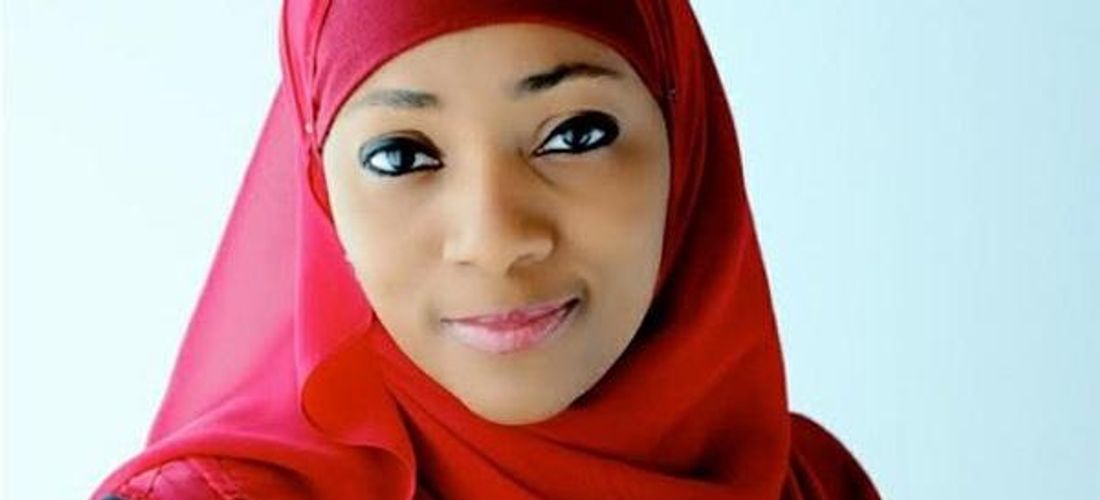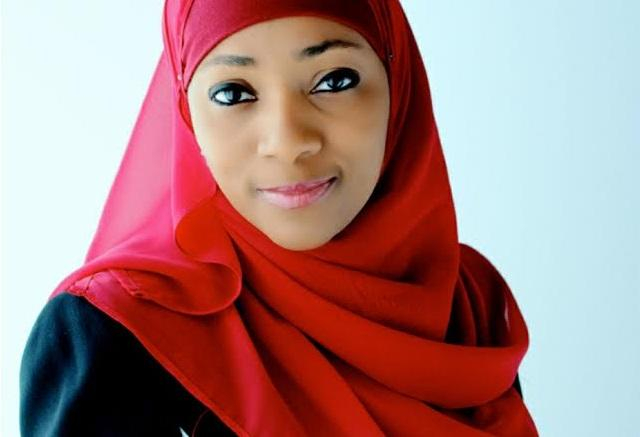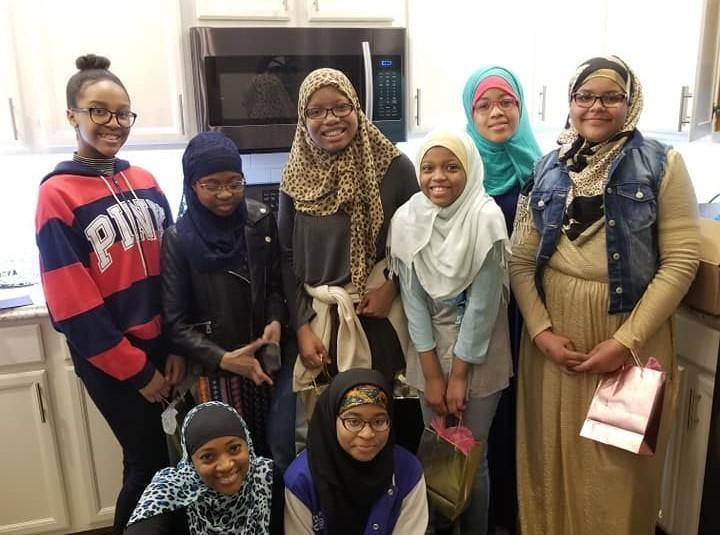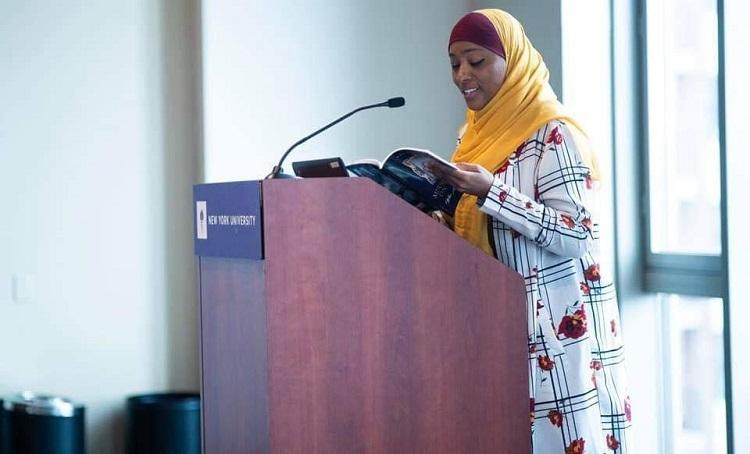Empowering Girls and Young Women - An Interview with Life Coach Asiya Jamillah Nasir
Lifestyle
|
Mar 15, 2019
|
9 MIN READ

Editorial note: In honor of Women’s History Month, we are asking ten questions to various leaders, authors, scholars and changemakers! Here, we are honoring the March Muslimah of the Month, Asiya Jamillah Nasir! Check back throughout the month to meet some phenomenal Muslim women!
By Layla Abdullah-Poulos
Recognizing that strong youth are crucial to strengthening the Ummah, Muslim mentors play a critical role in the development of young people across the country. They engage in activities with young Muslims in an Islamic context and can offer important advice to empower and instill confidence in them about their faith and identities.
At-risk young adults who have mentors are 55 percent more likely to enroll in college and 46 percent less likely to use drugs. Recognizing the importance of Muslim mentors, author and life coach, Asiya Jamillah Nasir founded the girls’ empowerment organization J.E.S.S.I.C.A. Cares to “guide young girls and help them to develop necessary skills to live a life that is pleasing to our creator.” Through her J.E.S.S.I.C.A. Cares’ one-day programs, Nasir teaches members the skillsets and resources needed to achieve their life goals as well as sharing their struggles and fears to help them overcome them.

J.E.S.S.I.C.A Cares hosts summer book clubs and job prep workshops in addition to their programming. The organization recently partnered with NbA Muslims to offer the Young Muslimah Poets Prize to attendees of their “Phenomenal Muslimah, Phenomenal Muslimah …That’s Me” workshop, which encourages young Muslim girls to write and express themselves.
Nasir has also authored "Mirror Mirror on The Wall...Who Am I After All?" - a motivational book for young women. She has more than 25 years of experience in the corporate and financial industries and received a certificate of completion for completing the "Life Lessons from The Prophetic Traditions Twenty Hadith Course" from Rawdah Institute.
I had the honor of talking with Asiya about her phenomenal organization, her book and who her mentors were growing up.
1. Who are your mentors - women or men who pushed you, uplifted you, challenged you to dig deep and do the hard work to help facilitate change?
I have several current mentors who motivate me each and every day. My spiritual coach, which to me is the most important because he redirects me and reminds me of my WHY, is Imam Shadeed Muhammad. Since taking my shahada (testament of Islamic faith) in 2014, his lectures helped me at a time when those closest to me walked away because of my firm stand on becoming a Muslim. [He] supports the J.E.S.S.I.C.A Cares Academy and [gives] countless assistance when I need clarification on Islamic matters so that I can ensure [I am giving] my students correct answers.
Sister Ieasha Prime, who gave me my shahadah, [is also my mentor]. I have always looked at her as someone I aspired to be with regard to how her words impact others and truly touch the heart. The beautiful dua's she gives [and] her knowledge of religion has been a great inspiration.
Lastly, Yasmin Mogahed. Although I do not know her personally, reading her book "Reclaim Your Heart" was truly a mentoring moment and one I used with my students as one of our book club’s book of choice.
2. What constitutes success in your line of work and/or activism? We all face numerous challenges along the way. How do we know when we're achieving success and making a difference?
What constitutes success in my line of work is actually seeing my students go from having very low self-esteem and sense of self-worth to becoming their own advocates and finding their voice. That moment is worth all of the nights of studying and preparing for classes and workshops. Seeing the girls truly build bonds with one another to where they want to spend time with each other outside of class. Seeing my student go from not wearing hijab to covering … those are the moments that I pray for. So when they happen, in my eyes and heart that constitutes success.
3. What would you like young women to learn from your work?

I would like the young women to learn that being different is not a bad thing. When mostly everything around you stands for immorality, low moral compass, promiscuity and total disobedience to Allah (S), then if what I stand for is the opposite, that is a sign that what we are doing is right. I want them to learn that if they turn away all that the dunya (world) has to offer but gain the approval of their Lord, they have gained everything.
Whatever they gave up for Allah (S), He replaces it with so much better. He replaces it with all that is good, no strings attached, no bad consciousness afterwards, no temporary joy … just peace; peace in this life and in the next. And that they can strive for all of their professional aspirations without having to compromise their faith.
4. How does J.E.S.S.I.C.A Cares promote confidence in young Muslim women? How much of Islamic teachings are integrated in your programming?
We share stories of those [who came] before us - the bold, confident women of Islam, the sahabas (companions of the Prophet Muhammad (saw) and their stories, the Prophets (peace and blessings to them all), who faced having to be the bravest when everyone around them were fearful. [We share about] how they were human at the end of the day, how because they drew close to Allah (S) and totally submitted to His will and not their own, that when things looked frightful, they were able to face it with courage. They knew and believed wholeheartedly the words of Allah. It wasn't just believing IN Allah, but BELIEVING Allah. They feared him and not his creation.
In all of my workshops I find a way to integrate Islam, even when teaching to non-Muslims. All the divine books are from Allah, so I take the commonality of it to share that Islam believes in various things non-Muslims do, thus bringing down the guard of those who do not know of Islam and then being able to give them dawah (summons). I integrate Islam in all of my workshops because I want my Muslim students to know that Islam is not just our religion, but our way of life. It encompasses everything in some way.
I want them to learn, as I have, that the Prophet (saw) was the WALKING Qur'an.
5. Why is a program focused on young Muslim girls important to the development of American Muslim culture?
It is important because Muslims are a huge part of American culture. Islam is the fastest growing religion in the world. To ignore it or not give [Islam] it's just due is to ignore prophecy and to ignore a huge population of American culture, which includes our young Muslim girls. These are our future doctors, politicians, activists and authors. They are growing up in a society that would like to silence them due to ignorance. We should not be part of that movement.
So, my job is to assist, by Allah's (S) permission, our girls in letting the world know that we are here, and we aren't going anywhere - hijab and all.
6. What does empowerment mean to you, and why is important?
To me, empowerment means to be uplifted from within - that you can feel good about yourself without the validation of another or be attached to what society deems as beautiful or genius. When one has reached that level of self-love and embraces the love that only Allah(S) can give - that is empowerment. There is an inner peace that comes with that. The Qu'ran tells us that the heart finds tranquility with Allah. When you reach that level, that is empowering, especially in a world that one values their worth based on the thoughts of others, which will always leave you discontent. Empowerment is also being in that state and knowing it is your responsibility to share that with someone else, whether on a large scale or not, but bringing that state of being to others. People do feed off of one another's positivity.
7. Are American Muslims failing their youth? And if so, in what ways?

I believe, unfortunately, as an Ummah we are. We teach our youth to look more the part of a Muslim then to have the heart of a Muslim. Many of our masjids are no longer a place where youth want to go. Why? Because, Allah (S) forbid, I am struggling in an area of my deen (faith). then I am an outcast instead of [turning to the masjid] as a safe haven for youth where they can be supported through their spiritual journey.
Our youth are growing up in times that are unprecedented, and we need to acknowledge that in order to have a better understanding of who they are and where they are in relation to their deen. Open dialogue promotes truth. You can only help someone if you truly know what is happening to them on the inside. Not including them in the narrative of how to assist them is the first of many of the mistakes being made with our youth.
8. What are two of the biggest challenges young Muslim women face in our society?
Having to be the face of an entire religion and not knowing the stories of the TRUE heroes of Islam; women like Asma, (the sister of Aisha (RA), Asiya (the wife of Firawn), Umm Sulaym, Umm Salamah and the list goes on. When we walk out of our home covered, everyone knows what faith we believe in, and we have to carry that in our speech and conduct ourselves as ambassadors for our religion. If not equipped with the proper armor of faith, it will feel more like a burden than an honor.
Having our girls learn their religion, the women of this religion - how their challenges and tests are similar to the ones we face today and to hear of how Muslim women are standing up and speaking out, that is empowering. These are stories that [young girls hear] upon coming to my class. If we gave those messages consistently to our daughters from childhood, the challenges they face will not seem so insurmountable.
9. You recently released a new inspirational book, “Mirror, Mirror on the Wall … Who am I After All?” What is the book's main message?
The operative word [in the title of my book is] "I." As we learned of the sahabas, as they studied and learned the Qu'ran, they not only memorized it, they pondered on its message to see how it applied to them individually. If changes [to their character and behaviors] needed to be made [based on what they learned from the Qu'ran], then they made them. They did not move onto the next ayats until the ones they had already learned became a part of them.
They were developing self by way of introspection - self-reflection and authenticity; really looking at themselves in a mirror and then making the changes to better their relationship with Allah (S) and then with his creation. That is why each chapter [of my book] has a section in which it encourages the reader to do an exercise that forces them to look within. The scholar Al-Ghazali wrote in his book, “The Forty Principles of the Religion,” something that captures the main message of my book. He wrote, "A person should reflect on his own faults. If there is no fault in him, then he should know that his ignorance of his own faults is the greatest of all faults."
10. What are some of J.E.S.S.I.C.A. Cares future projects?
1. Online book clubs utilizing my new book as a tool.
2. Development of how to become an Author for YOUTHS!
3. Creating a certification program with tutorials for other sisters in other states to learn the J.E.S.S.I.C.A. Cares process of teaching and brand and then teach it to girls where they are located. In Shaa Allah, we are striving for global J.E.S.S.I.C.A. Cares chapters.
Layla Abdullah-Poulos is a history adjunct, award-winning writer and managing editor for NbA Muslims. She has published several short stories in collections and a romance novel.
Subscribe to be the first to know about new product releases, styling ideas and more.
What products are you interested in?

